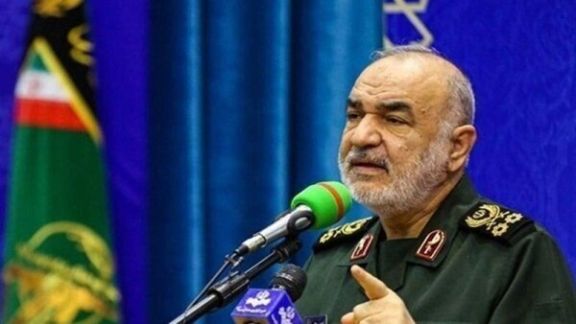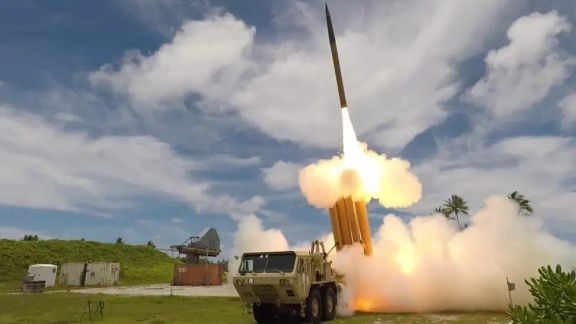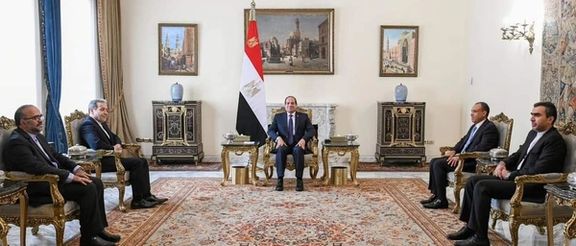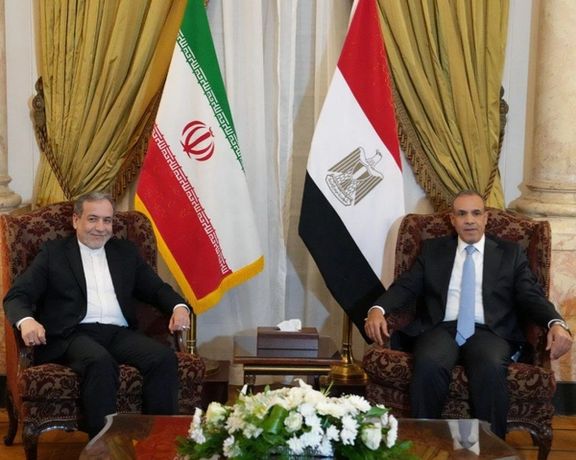IRGC commander warns of retaliation if Israel attacks

The commander of Iran’s Revolutionary Guards issued another warning to Israel on Thursday against its plans to retaliate for a missile barrage launched by Tehran earlier this month.

The commander of Iran’s Revolutionary Guards issued another warning to Israel on Thursday against its plans to retaliate for a missile barrage launched by Tehran earlier this month.
In a televised speech on Thursday, Hossein Salami warned: “We tell you [Israel] that if you commit any aggression against any point, we will painfully attack the same point of yours."
He dismissed the deployment of the US-provided THAAD missile defense system this week, sent in preparation for any possible Iranian retaliation in the tit-for-tat aggression.
The US also deployed 100 troops in preparation for the escalation, President Joe Biden standing by the country's regional ally.
“Do not trust the THAAD,” Salami added, adding, “You cannot commit genocide and remain safe", referring to Israel's ongoing war against Iran-backed Hamas in Gaza.
Israel has vowed to eliminate Hamas following the October 7 attack, in which over 1,000 Israeli civilians were killed. In the aftermath, Hamas claims that around 42,000 Palestinians have been killed, while Israel asserts that at least 16,000 of those casualties were Hamas operatives.
Tensions between Israel and Iran have been running high since October 1, when Iran launched 181 ballistic missiles towards Israel in response to Israel's killing of the leader of Hezbollah in Lebanon, Hassan Nasrallah in Beirut.
While Israel’s air defenses intercepted most of the missiles, several struck targets including military and civilian sites, causing minor damage.

Rasoul Sanaei Rad, the political deputy of the Supreme Leader Ali Khamenei's office, downplayed the US efforts to support Israel. On Thursday, he referred to the THAAD deployment as “a show and propaganda to boost the morale of the Israelis, who are in a state of panic.”
The Israeli government has vowed to respond to Iran’s missile strike, continuing its military operations in neighboring Lebanon and Gaza, where it has been targeting the leadership of Iran's proxies, Hezbollah and Hamas.
Syrian state media reported on Thursday that Israeli jets targeted the port city of Latakia in the early morning, while US forces carried out multiple strikes against military infrastructure belonging to Iran's Yemeni proxy, the Houthis.

Iran's Foreign Minister Abbas Araqchi’s visit to Egypt on Wednesday, part of a Middle Eastern tour, marking the first high-level Iranian diplomatic visit to Cairo in almost 12 years. The most recent visit to Egypt took place in January 2013, when then-Foreign Minister Ali Akbar Salehi visited Cairo during an African tour.
He met with Egyptian President Abdel Fattah al-Sisi in Cairo on Thursday. Sisi reiterated Egypt’s call to prevent the conflict from expanding, stressing the need to avoid escalation, as reported by the Egyptian presidency.

Araqchi’s visit follows stops in Jordan, Saudi Arabia, Qatar, Iraq, and Lebanon. He also met with his Egyptian counterpart, Badr Abdelatty, on Thursday.
While relations between Egypt and Iran have been strained for decades, the two nations have increased high-level diplomatic engagement since last year’s Gaza crisis. Egypt, which sits on Gaza's border, is one of the mediators between Hamas and Israel, along with the US and Qatar.